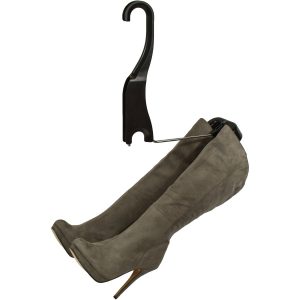Wander through almost any office space, and you’ll get a good idea of who the most productive and efficient workers are just by looking at their desks. Not every desk that’s devoid of objects or arranged in a specific way will belong to an organized and efficient individual — but cluttered, messy desks tend to get in the way of productivity. Fortunately, there are ways for all people to organize their work desks to make them, ahem, work better for them: mentally, physically, and professionally.
What are some key things to keep in mind? There are both habits and tools that you can either acquire or become familiar with that will help. And what are they?

Ergonomics – The principles of ergonomics are about more than buying fancy and expensive office equipment. It’s defined as “a science that deals with designing and arranging things so that people can use them easily and safely.” While this has a whole range of applications for all kinds of work, within the office setting, the most pertinent advice is:
- Whether sitting or standing, keep your posture “neutral.” Your spine has a natural s-curve to it, and you need to work with it rather than against it. Your neck should be aligned with your spine, your elbows should be at your sides, and your wrists should be in a neutral position. The proper ergonomic posture will help maintain both your comfort and your general health.
- Keep your computer and your keyboard centered on your desk. Keep all of your most used items within easy reach. This is the semi-circle your arms make as you extend them and turn your body. If too many of your things are placed farther away, you’ll waste time and energy searching or reaching for them. While it’s important to take stretching and moving breaks during the day, this should not be walking across a cubicle to get to the printer if you print continuously throughout the workday. That’s failed efficiency, not a healthy habit.
- Work at proper heights. Most of the time this will involve working with your elbows at desk height, whether standing or sitting. If you have to reach down or up to type at your keyboard, your spine will not remain in its naturals – curve.
- Keep your workspace comfortable. Address any problems of lighting, glare, sound, or vibration right away because, if you’re constantly distracted, you will not get as much done. If your desk space is small, rearrange it so that at the very least, you will not be pressing up against anything or bumping into anything as you move about.
- Your monitor should be positioned so that you can look at it while you’re sitting up nice and straight. It should not above or below eye level.
Declutter. This is invariably the first step of any type of organization: getting rid of things you do not need and do not use. Your desk doesn’t have to be an empty surface, but you should keep the knick-knacks to a minimum so your distraction level will be low. Photographs are an exception everyone wants to make, but, again, they can be distracting too if they’re tacked up on a board in a jumble. Hang or display the most meaningful ones in a tidy way and replace them from time to time. New photos will perk you up to keep you productive, and that will be worth the distraction.

Take time to regularly reorganize. Pick a time each day to clear the desk of any notes and other items that may have accumulated and then make a habit of it. Make sure that the time you pick doesn’t cause you to rush or feel anxious and pencil it into your calendar (or better yet, set a recurring notification on your phone) until the habit has been established. Getting rid of daily detritus will do more for your work stress level that many other solutions, and it’s so easy to implement.
Use organizational tools as aids.
- Utilize a hanging file system for keeping paper files in order.
- Use containers like this penpot to keep pens, pencils, or other office supplies neatly instead of loose on the desk or in a drawer.
- Add paper cubbies to your desk if you need to keep priority items in front of you and organized.
- Post a tackboard to keeping important information or notes where you can see them.
Many people spend the majority of their waking hours at their work desk. If that desk contributes in any way to an unhealthy mindset, posture, or work life, it’s failing them in a big way. Don’t let that happen to you. Take a bit of time to get your work desk in order, and it will pay off in a big way for your productivity and work mindset.


